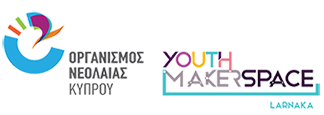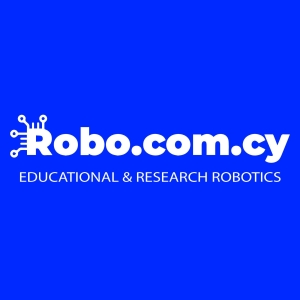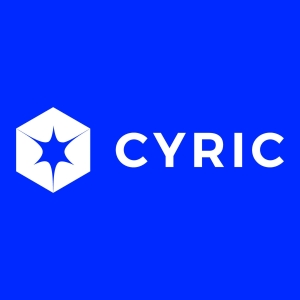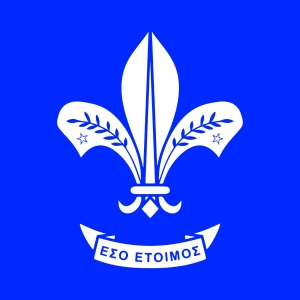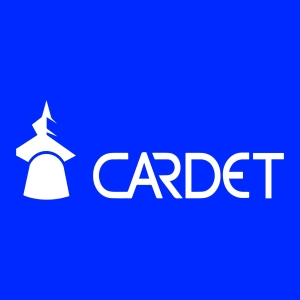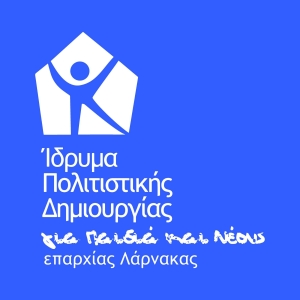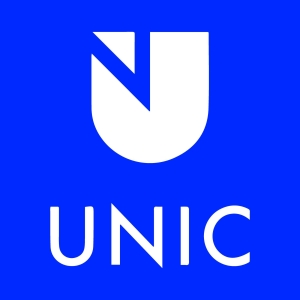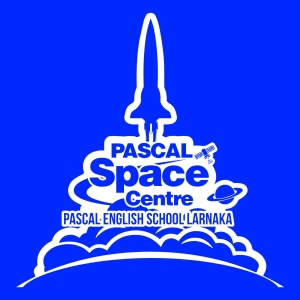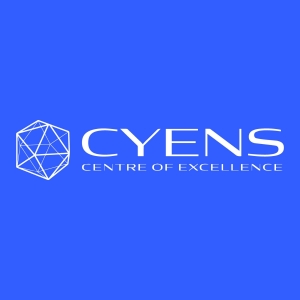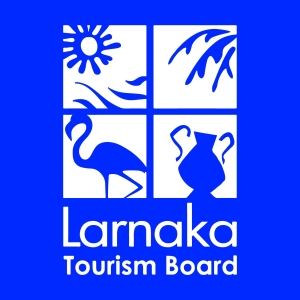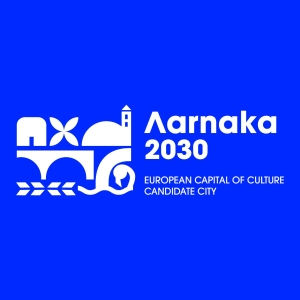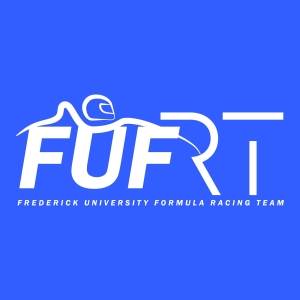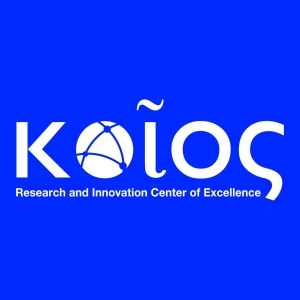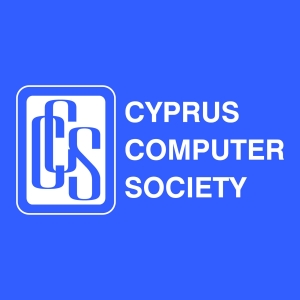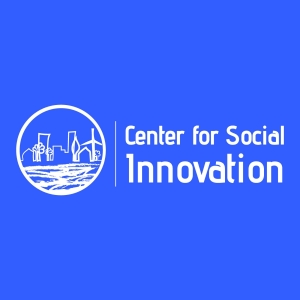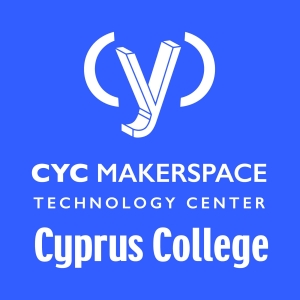ROBO CY – Kypruino
We celebrate the launch of the first Cypriot Arduino board with live interactive demonstrations at the Maker Fair! Live demonstrations will include:
- An environmental hub that receives and reports live temperature, humidity, and light intensity data
- DOOM – gameplay demo
- How fast are you? – reaction game
This special edition is a tribute to innovation and technological progress in Cyprus, marking a major milestone with the launch of the Kypruino, the island’s first Arduino-compatible board. Kypruino is a leap forward in the Cyprus technology landscape, integrating the world-renowned Arduino platform with local expertise. It acts as a beacon of inspiration, encouraging the next generation of engineers and makers to explore the fields of technology and electronics. With Kypruino, we welcome you to the future of Arduino development, where the possibilities are only limited by your imagination.
CyRIC
CyRIC is the only certified by the European Business Network, Business Innovation Center (BIC) in Cyprus. It aims to develop research and innovation, while at the same time offering services in the field of engineering design and prototyping, electronics and communications, and software solutions. In addition, it offers a range of specialized consulting and entrepreneurship services to start-ups and small and medium-sized enterprises. At the same time, through its state-of-the-art Gravity incubator, it enables aspiring entrepreneurs to shape and implement innovative ideas from their early stages to the full realization of their design.
Activity 1: Prototyping with the Groove Starter Kit – Arduino-based platform ideal for beginners, for easy and fast creation of projects, without the use of soldering. Its base, with the Lego philosophy, allows the easy connection of any microprocessor input or output that controls various functions. Participants will interact with the material, edit it, and then program it creating their projects, in a creative and fun way.
Activity 2: Recognize emotions through AI – Using a computer and specific software, participants will be introduced to how AI uses algorithms to recognize and understand human emotions by analyzing data such as speech and expressions person, to help provide personalized and targeted services, mainly in the health sector.
Cyprus Scouts – Larnaka District
The scout, as a resourceful maker, learns to be inventive and to make creations from natural as well as artificial materials. Through useful skills, he is taught to be “Eso Ready”, i.e. always prepared to face anything, at any time. In our booth, you will find various pioneer camping techniques, as well as crafts and demonstrations of basic knots and connections.
Scouting is a voluntary educational movement with global action, open to all, without discrimination. The purpose is to contribute to the proper education and development of the youth with an emphasis on outdoor life so that they can fully utilize their physical, intellectual, social, and spiritual abilities as individuals and also integrate smoothly into society as responsible citizens.
CARDET
The CARDET team will have tools and activities at the booth to leverage technology tools for education and training. Specifically through the AR application Augmented Reality can be used to learn concepts in Science, Technology, Engineering, Arts, and Mathematics. In addition, the VR tool can be used as a means of social inclusion and active participation in Education.
Cultural Creation Foundation for children and youth of Larnaca
The Foundation for Cultural Creation for Children and Youth was founded by the Ministry of Education and Culture and has been operating as a non-profit organization since July 2010, with the support of the Deputy Ministry of Culture. Its purpose is creativity, the provision of equal opportunities to access and participate in cultural goods, the strengthening of interculturalism, the promotion and preservation of our cultural identity, and in general the contribution to any cultural and artistic programs or events, with an emphasis on children, teenagers and young people. The Foundation aims to provide a ‘healthy’ environment for children and young people of all ages, where they can create, regardless of background or economic status, by providing, among others, theater, music, personal development, creative writing, and creative workshops based on architecture and cinema. In addition to workshops and seminars, the Foundation also organizes external events, in collaboration with various Organizations and Bodies, through which art and culture are promoted.
InSSTER Research Center – University of Nicosia
The InSSTER research center of the Department of Pedagogical Studies of the University of Nicosia, as part of the ICSE Science Factory program, will be present at this year’s Makers Fair festival. The activity includes the demonstration project on the counting of suspended particles in the atmosphere, which is a source of atmospheric air pollution. The demonstration will concern both the counting of particles with devices prepared by students and the use of sensors. Attendees will also have the opportunity to learn about the main sources of said pollution as well as the impact on human health!
Pascal Space Station
The Pascal schools of Larnaka, Nicosia, and Limassol present their project on STEAM Education combined with Artificial Intelligence through HiAi. This initiative aims to enable students to develop their own AI chatbots, featuring characters of their choice. These chatbots were designed to communicate with both students and teachers in eight different languages. The main aim is to enhance students’ knowledge in advanced topics such as 3D printing, artificial intelligence, and programming. The school units will exhibit their robotic creations along with a detailed roadmap and their experiences gathered during the creation of the project.
Thinker Makerspace – CYENS Center of Excellence
The “Thinker Maker Space” of the CYENS Center of Excellence presents the innovative “CampScape” initiative. Chosen as the only representative from Cyprus for Culture Moves Europe, this project has a social impact. The project is implemented in the first migrant reception center Pournara, where the aim is to create facilities and activities/workshops tailored to the unique needs of young unaccompanied migrant adolescents, boys aged 14-17. The teenagers, along with the team of 4 designers – resident artists and the TMS team are actively involved in the design process, ensuring that the facilities meet their needs and promote a sense of ‘belonging’. Our goal is to create a humane environment, through the participation of immigrants in the design of a shared entertainment/sports area. With a 7-month project timeframe and guidance from a team of architects, designers, and social workers, the CampScape project promotes creativity, innovation, and social giving.
Larnaka Tourism Development and Promotion Company
The Larnaka Tourism Development and Promotion Company enriches and promotes the tourism product of the Larnaka Region through a series of actions and projects based on sustainability and authenticity. At the same time, special emphasis is placed on creating digital media for local and foreign visitors about the unique elements that the area has to offer, including:
Talking Statues of Larnaca (in collaboration with ONEK): the statues of Larnaca come alive and tell their story in English and Greek, through access with QR codes.
Virtual Museums of Larnaca: visitors are allowed to virtually explore the area’s museums from their homes, while the platform can act as a digital tour guide during their visit to the museums.
Virtual Restoration of Archaeological Sites of Larnaka (in collaboration with ONEK): Ruins of monuments and archaeological sites take their original form through accurate 3D renderings.
The Larnaca 360° Cultural Walk allows visitors to explore the city of Larnaka (seafront, shopping center, and old neighborhoods) in digital format with additional information and links.
European Capital of Culture Organization – Larnaca 2030
The “European Capital of Culture Organization – Larnaca 2030” was established in October 2022 by the Municipality of Larnaka to manage the candidacy of Larnaka as the European Capital of Culture (ECC) 2030. Larnaka 2030 aims to develop the vision for long-term sustainable cultural development for Larnaka, which will form the basis for the city’s candidacy for the title of PPE. The main objectives of the organization are:
- The empowerment of local artists, cultural workers, and cultural democracy.
- Developing a better understanding of Europe, our common European cultural heritage, and the common challenges facing Europe and Europeans today.
- The promotion of equality and equal access to culture for all communities and social groups at local, national, European, and international levels.
- The promotion of environmental sustainability, strengthening environmental awareness and green practices at local, national, European, and international levels.
The presence of Larnaka 2030 at this year’s Makersfair takes place within the framework of the Larnaka BioDesign Festival, an annual festival to renegotiate our relationship with the environment through a series of public participatory actions with artists and researchers from Cyprus and abroad.
Frederick University’s “FUF Racing Team”.
The team “FUF Racing Team” was created by students and professors of Frederick University and is engaged in the construction and development of a single-seater Formula 1 racing car. Every year the team participates in the world competition “Formula Student” which is a top student competition. The main goal of the racing team is the creation and development of an autonomous team with solid scientific and technological bases, which will result in the construction and continuous optimization of the single-seater racing car. The participation of university students in this institution allows them to apply their theoretical knowledge in practice as well as information that they will need in their future careers as professional scientists.
KIOS Research and Innovation Center of Excellence
The “Koios” Center of Excellence of the University of Cyprus is the largest research and innovation center in the area of information technology and communications. Its researchers develop smart tools to make critical infrastructure systems smarter, more efficient, and safer for the benefit of society.
Cyprus Computer Society – CCS
The Cyprus Computer Society (CCS) is a professional, scientific, and independent non-profit organization, to develop, upgrade, and promote the ICT sector in Cyprus.
The Association emphasizes the youth with actions aimed both at attracting them to technology professions and at providing the appropriate resources to improve their digital skills. In cooperation with stakeholders and with the valuable contribution of volunteers, we undertake youth activities and student competitions in the fields of programming, algorithmic thinking, cyber security, and robotics.
Robotex MRC 2024
One of CCS’s largest robotics events is the Robotex competition, which this year will be held alongside the MRC (Minoan Robot Sports Competition Global Olympiad) on June 29-30 at the University of Cyprus. At our booth at the MAKERS FAIR, examples from the challenges of the Robotex MRC 2024 event will be presented.
Center for Social Innovation
The Center for Social Innovation (CSI) aims to improve the quality of life of all people in all the societies it has access to. It designs, develops, and implements innovative social interventions and programs that can bring about positive change in local, national, regional, and global challenges.
As a sponsor of Makers Fair 2024, our team looks forward to offering a range of activities aimed at learning, training, informing, and entertaining. Our main activity will use Virtual Reality (VR), and its related equipment and will be integrated with an educational game. The game will invite young men and women to explore various scientific, social, and cultural mysteries. In this environment, participants take on the roles of explorers, gathering information, solving puzzles, and facing challenges that require the application of knowledge and skills.
Individually, the CSI team will co-create micro-constructions with the young people, to raise their awareness of the climate crisis, while there will be information on training, active participation, and volunteering programs.
Cyprus CYC Makerspace
The CYC Makerspace is an innovative technology space open to high school students, researchers, students, and the teaching staff of Cyprus College. The CYC Makerspace aims to enhance learning and contribute to gaining hands-on experience. As part of the integration of the CyC Makerspace into the IT courses, the students of the Computer and Network Technician diploma put together a variety of projects using Arduino. These projects focus on cultivating skills such as teamwork, programming, and software/hardware development through hands-on experience. Students apply theoretical knowledge to real problems by collaborating and developing practical scenarios in technology and demonstrate their ability to combine various components to solve specific technology issues. The goal is to understand and apply practical techniques in the field of robotics and automation. Using Arduino microcontrollers, breadboards, sensors, motors, and other electronic components, students designed creations such as autonomous vehicles that navigate by ensuring obstacle avoidance and Arcade consoles that encourage creativity in programming.
